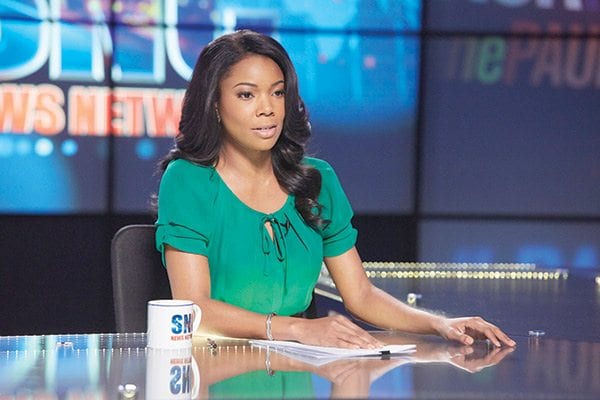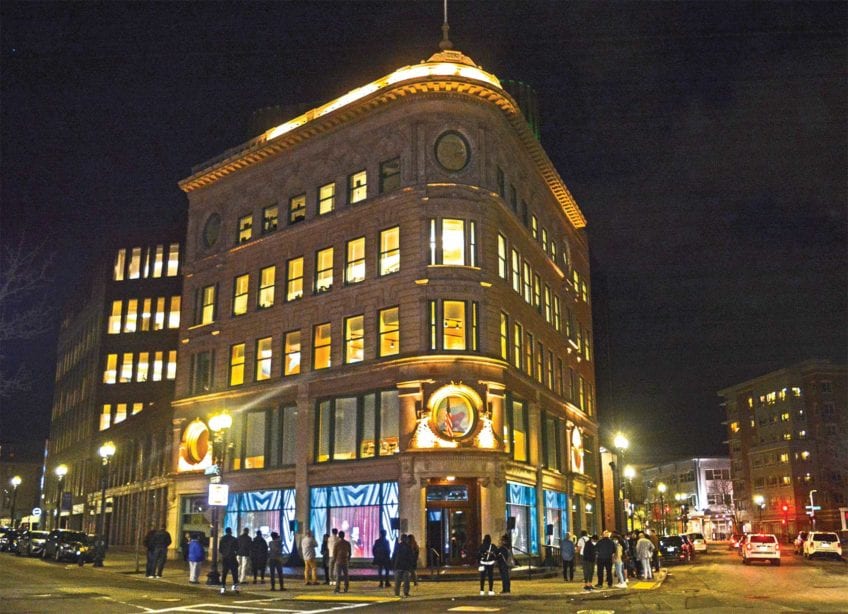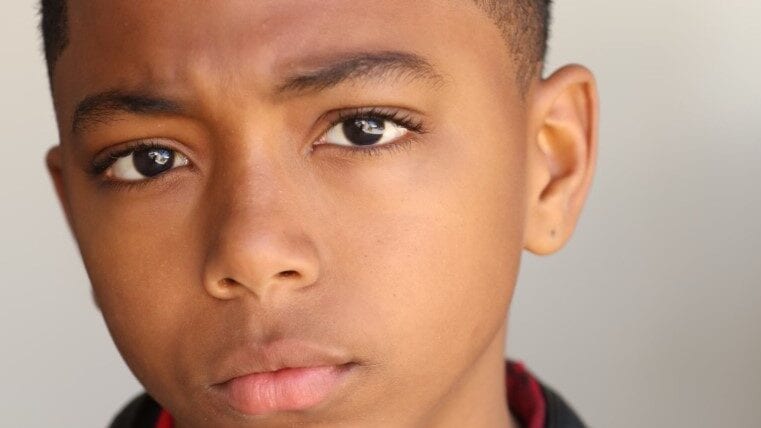

Gabrielle Union says that her role on the new BET drama “Being Mary Jane” reflects the different degrees of her character, TV news anchor Mary Jane Paul.
Gabrielle Union might as well be a unicorn or a leprechaun or some other mythical creature. She is stunning and petite and warm and kind — all things that actresses of her stature and beauty aren’t supposed to be. And get this: She likes bacon.
Not all things bacon, but a quiche-looking thing that sits in rows on a square plate in front of her. She didn’t order it so much as it just appeared, all neat and prepared, like magic.
She looks at the food and wonders aloud whether it has bacon in it. She picks it up, inspects it a bit and then, throwing caution to the wind, dives in. Two bites in, she closes her eyes, and it is confirmed: bacon.
She is satisfied.
We are waiting for her fictional mother and “Being Mary Jane” co-star, Margaret Avery. Union is getting the room ready for her — adjusting the seat, moving the microphone closer so that Avery’s soft voice can be heard on the recording. Union will do this throughout the interview. She will check on Avery, defer to her, and listen intensely when she talks about her years of being a black woman in white Hollywood. Although the two aren’t blood-related, they have a bond that reads as very familial. They make inside jokes, finish each other’s sentences, and tease each other.
“When y’all talked about the ‘booty call,’” Avery says, as if it were a foreign tongue, “I heard that and went, ‘Oh God.’” She puts a delicate hand across her chest, clutching imaginary pearls of a past that didn’t include such crass advances. “I mean, I grew up in a time when husband and wife slept in separate twin beds.”
Union laughs, and that’s where their fondness for each other lies — somewhere between the absurdities of booty calls and married couples in twin beds. One of these actresses comes from an old Hollywood that never saw her as light enough to be a leading lady, while the other is a leading lady who struggles with her own beauty and finding roles that allow her to express real emotion. Both are looking for raw honesty and the authenticity of true experiences in “Being Mary Jane.”
Premiering Jan. 7, BET’s first one-hour scripted drama focuses on the professional and personal life of successful news anchor Mary Jane Paul, played by Union. The TV movie premiered last year and was the highest-rated cable show for that day, serving as a kind of backdoor pilot into the series, which has already been picked up for a second season.
The series, created and executive-produced by Mara Brock Akil (creator of “Girlfriends” and “The Game”) and directed by her husband, Salim Akil (“Jumping the Broom”), is an unflinching look at the balancing act of trying to manage a stressful family life and a hectic career, all the while traversing the tight rope of single-dom.
Union credits a failed “Scandal” audition with guiding her toward her new role. “The words that we were auditioning with were so amazing that all of us were like, even if we don’t get this job … it was so good to practice with good material. It’s making me better just auditioning … We all kind of fell in love with this idea of playing in a world that a black woman had created,” she says.
The world Brock created is one that Union believes is a testament to an authentic life. “For women, you are either a victim or a hero. You’re either the good girl or the bad girl, and very rarely do you get to see 360 degrees of a character,” she says. “In ‘Being Mary Jane’ you see her be all of that. She is a victim, she is a hero; she’s a good girl, she’s a bad girl, and she has those days when nothing is really happening. It reflects life — we aren’t all one thing.”
For Avery, the reflection is a bit different. “I was just happy to have a job,” she says, sharing a laugh with Union, tinged with a sadness that they both know to be based in truth.
“I am happy about ‘Being Mary Jane,’” Avery says, “because when black people do the casting, they accept my look. When whites are doing the casting, they figure, if I’m the mama I’ve got to be 20 to 30 pounds overweight and almost semi-Aunt Jemima-like. It’s got to be that look that makes them feel comfortable.”
It is that comfortable look that makes Union feel uncomfortable. “It is a caricature, a stereotype, and it isn’t real,” she says. It is authenticity that she craves from Hollywood. “I would love one time, a woman plucks her chin hair. Or just one time a man goes in for a full workup because of low testosterone or low libido … just the real issues that we are actually facing, and also the backlash that comes with it.”

Gabrielle Union stars at Mary Jane Paul on BET’s new drama “Being Mary Jane,” which premiered on Jan. 7.
She turns to Avery: “The scene where you are sick and coughing and Richard [Roundtree as Avery’s husband] says, ‘I wish you would go on and die already.’ You never see that! People having a moment of brutal honesty.”
Avery and Union don’t just play these characters — they believe in them and fight for them. It is clear in talking with both women that this isn’t really a show they star in but more a cause they believe in.
“I was tossing this conversation around with some of my friends when I recognized that my own father wouldn’t have dated me,” says Union. “My dad only likes light-skinned women, and he married a light-skinned woman thinking he would have light-skinned children.”
Avery and Union look at each other and laugh. “Whoops,” Avery says.
This is why Avery and Union — both sisters in the struggle for high-quality roles for black women — believe in the power of the storyteller behind the camera and the storyteller in front.
“This is a story that we are telling, and it is definitely FUBU, for us by us,” Union says. “If you can relate to any aspect of the show, any of the characters, then it’s a bonus … The BET audience is incredibly diverse, and that’s a good thing. I’ve done black films where [they’re] only covered by black press, and this is not one of those projects.”
“We have shot through those fences, and now we are just everybody’s baby, and whoever clings to that baby, great,” she continues. “It’s like when a celebrity that everyone loves gets pregnant and everyone claims that baby: Everybody loves Nayla [Halle Berry’s daughter]. You live for those pictures, and not everybody loves every celebrity kid, but everybody loves Nayla.
“I think,” she says, “’Being Mary Jane’ is like Nayla.”
The Root






